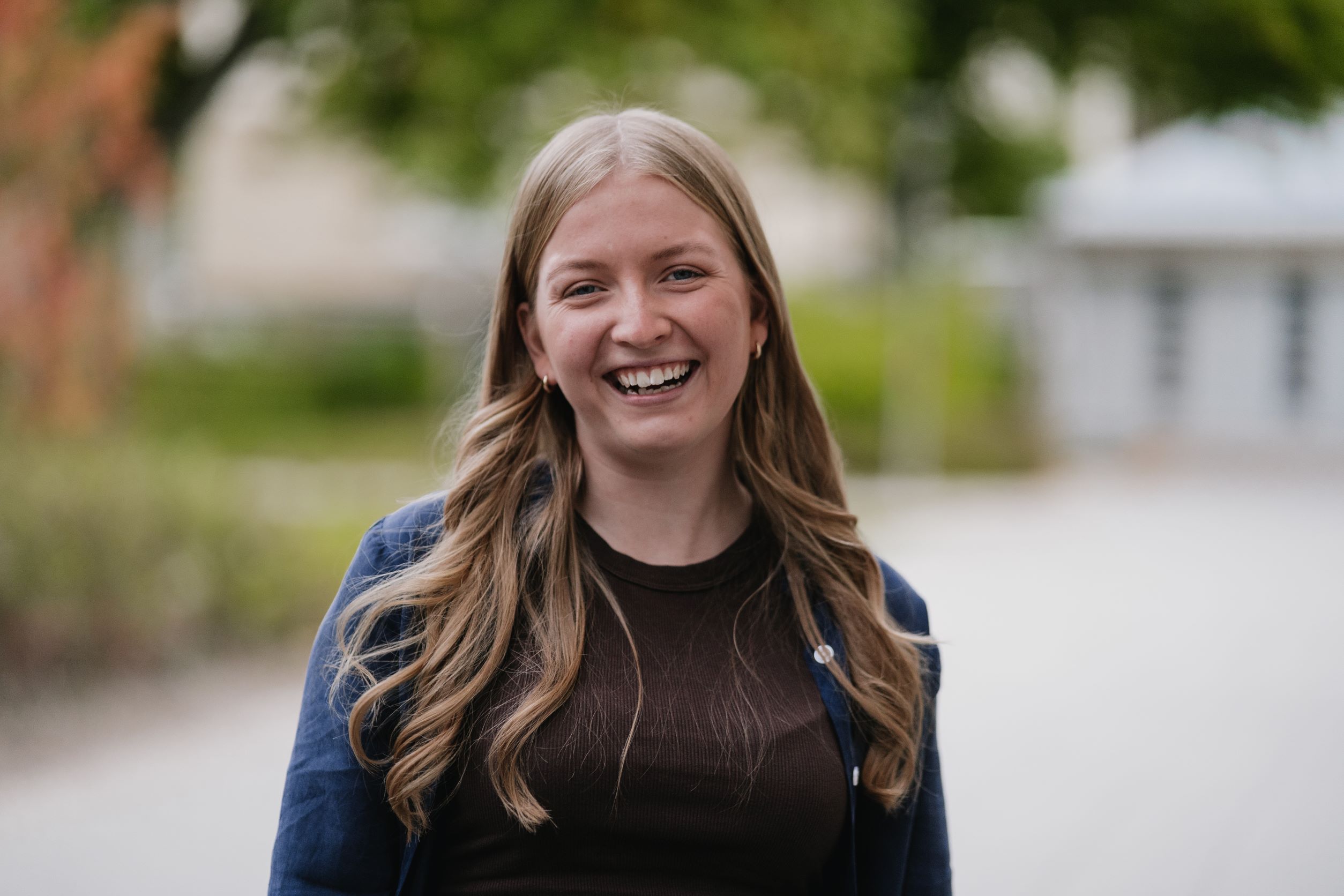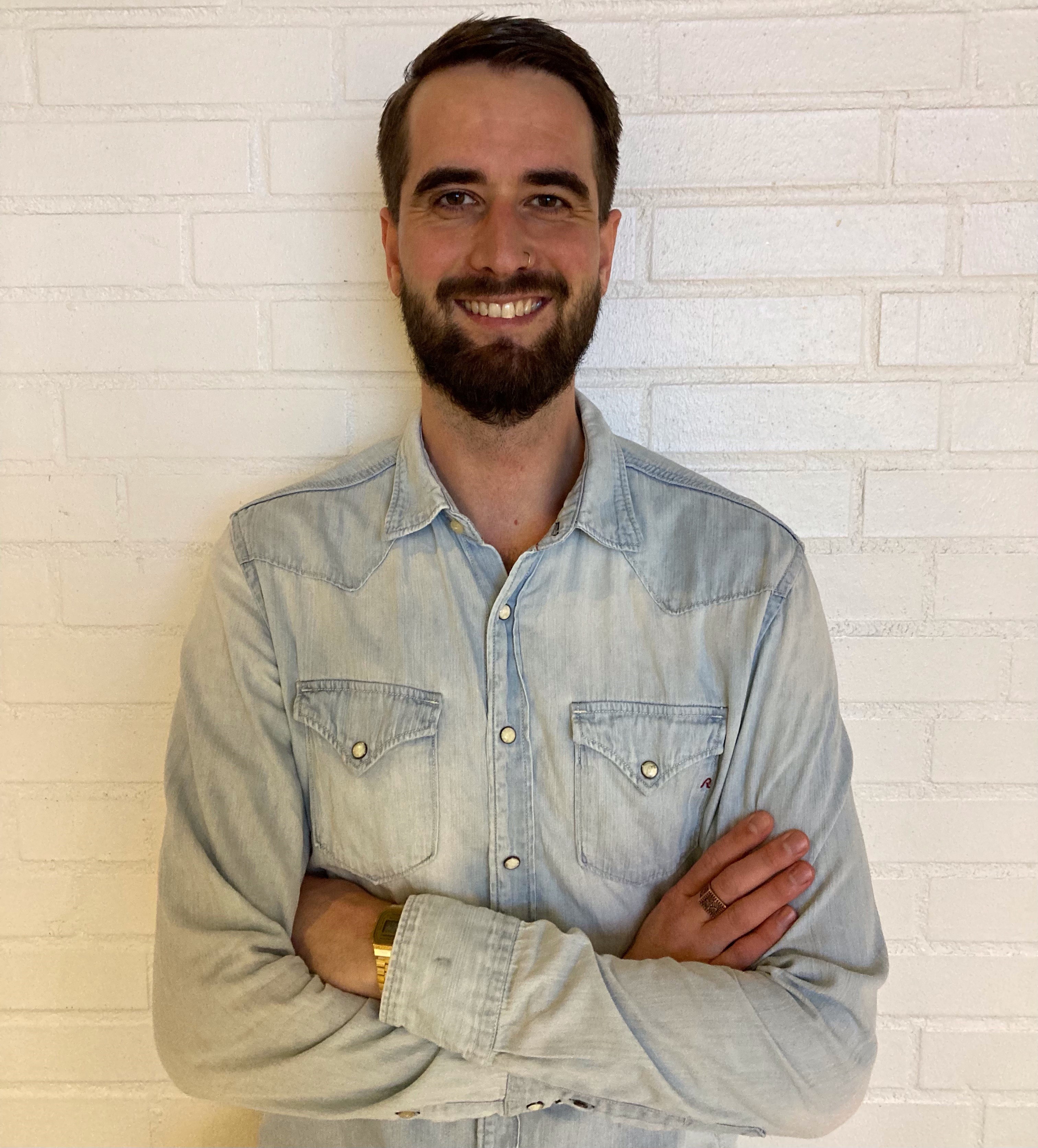Two JU students listed among Sweden’s most influential sustainability profiles
Every year, the Swedish Journal “Aktuell Hållbarhet” lists the most influential young talents under the age of 33 that, in one way or another, have already made an imprint in the area of sustainability. The list contains activists, lawyers, researchers, engineers and others. Two of the talents on the latest list, presented at the beginning of December 2021, are students from the Sustainable Enterprise Development programme at Jönköping International Business School (JIBS).

Ellinor Axelsson is the youngest talent on the list, but has a wide range of both academic and work-related sustainability experience.
Ellinor Axelsson; youngest on the list, but with impressive experience.
Ellinor Axelsson is the youngst talent on the list. After graduating from the bachelor’s programme Sustainable Enterprise Development at JIBS, she continued to study for an entrepreneurship master’s at Chalmers in Gothenburg. Ellinor is only 24 years old, but in addition to her studies, she is already the founder of a transport startup and a sustainability consultancy at OKQ8. She is a coach for TEDx speakers in Gothenburg, where she is coaching a speech about greenwashing and has also been a board member at Miljöbron. Ellinor is already an experienced lecturer and has been an advisor for Swedish UF (Ung Företagsamhet).
“I think it is incredibly important not to think that you are too young to do anything. I actually think that is one of the reasons why I was nominated. Even though I am young, I have a wide range of both academic and work-related sustainability experience,” Ellinor says.
Her interest in sustainability is genuine. She finds it important to work with something she truly feels can make a difference. If we don’t act sustainably now, there is no prospect of a functioning planet in the future. That insight is both alarming and, at the same time, encouraging her to spend her time working on those crucial issues.
“The future is uncertain and exciting! I believe we will work things out when talking about sustainability, as long as we don’t wait too long with actually starting the work,” she says.
“We need to find new ways to motivate sustainability initiatives.”
According to Ellinor, programmes like Sustainable Enterprise Development play an essential role in creating a more sustainable future. Not least as this kind of education provides both economic and sustainability perspectives. Motivating sustainability initiatives can be challenging if you can’t provide financial proof that it is profitable. Therefore the next generation of leaders must learn to do both.
“The biggest threat to the work for a more sustainable future is not being able to understand HOW sustainable something is. Sustainability is fuzzy and hard to measure, making it tricky to motivate large sustainability investments. Suppose we can put a number to it? In that case, it makes it easier to compare that sustainability figure with a traditional financial figure. So the thinking would be; how large a sustainability impact will we get for each SEK? I think this kind of approach could boost sustainability investments,” she says.
Though she has already made a remarkable imprint in the sustainability sector, Ellinor has big plans for the future.
“I will soon be graduating from my master’s studies, and after that, I want to do a lot of things! I want to start a bunch of sustainable companies, work as a sustainability consultant and advisor, be a sustainability manager at a large corporation, work as a board member – you name it! I just have to find the time to do all the things I want to do,” she says.

Sustainability is a way of living and thinking, according to Jonathan Angel
Jonathan Angel; a talent with a holistic approach to sustainability
One of the other talented nominees on the list is Jonathan Angel. He is a final-year student at the Sustainable Enterprise Development programme. He is also the founder and host of “The Decade Podcast”.
“It’s a podcast driven by curiosity around how humanity can evolve and do that sustainably. My companion Melker Larsson and I have discussions with influential individuals within the area of sustainability around the signature question “How on earth can we live together?”. The vision is to share inspiration, knowledge and stories about humanity’s current great challenge; how to reach a sustainable state for the planet we inhabit and for ourselves as a species,” Jonathan explains.
Jonathan is a former top-level volleyball player from the west coast of Sweden who one day realized that there is more to life than just sports. The drive to really make it wasn’t there anymore, and he decided to leave Sweden for a while to see more of the world. Jonathan travelled around the globe back and forth for six years and realized that he was privileged to live in a country like Sweden. He saw a lot of inequalities and poverty, and it made him realize that there is so much in this world that could be better. After returning to Sweden, Jonathan worked as a Youth Mentor for unaccompanied refugee children. He realized that contributing beyond himself was something he saw as deeply rewarding. Since then, Jonathan has worked as a project leader at Sustainergies and has also been a keynote speaker at the Jönköping University Sustainability Festival in 2020, among other things.
“Sustainability is a way of living and thinking.”
“Sustainability is important for all of us. I would say sustainability is the crucial thing we need to implement in so much more of what we do. It’s not just about doing a fancy section in the annual report at the end of the year, recycling your trash or eating vegetarian food. Those things are integrated into sustainability, but there is so much more to it; it’s a way of living and thinking. In our podcast, we take a very holistic approach to sustainability. We aim to curiously explore the inner dimensions of personal development needed collectively to increase the probability of us making the necessary shift towards greater sustainability. We hope to inspire others to embark on their own sustainability journey,” says Jonathan.
He also thinks that programmes like Sustainable Enterprise Development play an important role since the students get a great foundation about business development and entrepreneurship through the lens of sustainability. By integrating a large part of sustainability into education, he believes it can also create a positive ripple effect on the people that the students encounter in their lives and careers. And according to Jonathan, a collective effort is necessary to make the changes needed for the future.
“It’s evident that we have the inventions and technology needed to do the required shift. Scientists have been telling us what is currently happening for a long time, but we value our present needs more than the future. We’re so comfortable with how we live our lives that it feels alien to us to do the necessary change. We’re told that big threats to our environmental problems are biodiversity loss, ecosystem collapse, climate change, etc. For me, it indicates that the biggest threat we are facing is connected to ourselves. Our disconnection to nature and ourselves combined with selfishness and greed are some of the aspects that need to be addressed at scale to reach a more sustainable state.”
Jonathan is, however, hopeful for the future. He thinks sustainability will be much more integrated into everything we do in the future. In workplaces, education, how we raise our children, how we choose to travel etc.
“So much is happening as we speak, wonderful people and organizations paving the way for the new normal, so I’m very optimistic.”
Jonathan has yet not decided what he will do after graduation. His biggest drive and passion is to work for positive change in this world, for humanity, other animals and planet earth. He has a big drive to work towards and with the personal development and leadership needed to improve our possibilities of reaching a sustainable state for ourselves and the planet.
“Everything starts with ourselves”, Jonathan explains. “The plan is to take it step by step and be open to what opportunities are present”.
The future might still be uncertain, but one thing is for sure - with more young talent like this, the work towards a sustainable planet is in capable hands.
